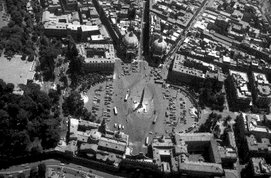After the first time I finished reading Susan Bickford essay, I was like "wow." So much information’s, arguments, and opinions were expressed in her writing, that after reading her essay I was having mixed reaction before sharing my thought on commenting her essay. Bickford writing voices her concern of how the after the first time I finished reading Susan Bickford essay, I was like "wow." So much information, argument, and opinion was expressed in her writing, that after reading her essay I was having mixed reaction what to comments on. Her writing was eloquently voices her concern how much built environment strongly influence and alter political theory, Bickford later explain ideology
“Contemporary” society builds their living environment, can creating segregation and hostile influence for the development of democratic politic.
Bickford also shares other philosopher theory point of view and ideology about how to build living environment, including her own argument to rebut those theory. At the end, Bickford propose her own perspective view how to improve the situation describe above. It was concise and well written essay to read, I certainly enjoy Bickford writing that challenge the reader, especially us as designers to be socially aware, and responsible for the future building development. Because how we think when we design, can shape the future politics.
The second time I read Bickford essay, I was surprise how little she mention what does the government do to improve the segregation that is happening in living build community. Upon further reflection from Bickford essay, I do realize at the end, it is still up to the individual choices to choose where to live, and how to live their life. In facts, there are many programs that the government offers for those who are less fortunate, and lived bellow poverty level, but yet most of those people choose to where live, spent their life, and be comfortable with their choices. Also, it is also possible that many just simply didn’t know how to improve their life. Why? Because lack of information’s and educations that are available for today’s society. I would be interested to hear or read Bickford point of view how education may actually be able to change the relationship build environment and politics.
Friday, January 5, 2007
Susan Bickford essay "Constructing Inequality"
Subscribe to:
Post Comments (Atom)


2 comments:
I think education is a key in the solution to these built environment issues. Educating the different groups of people about each other and educating all people about the built environment at least create a desire for some change.
One of the things Bickford argues is that our privatized environments teach us how to be private, that they are "hostile" to our "democratic imagination." Imagine the kids who grow up knowing only the subdivision, the soccer club, the school, and mom's protected minivan that moves them back and forth between points. They learn pretty quickly that the world is scary and dirty unless it's supervised (and supervision is as much of Bickford's analysis as privatization).
I'm old enough to remember, when I was in grade school, that on weekends and summer days, I'd go out the door at nine in the morning and come home at dinnertime, and nobody knew where I was all day. I was on my bike or playing baseball at the vacant lot or walking around in the department store across the highway or listening to music and playing cards at my friends' houses. That would TOTALLY be considered child abuse today. But crime rates haven't changed much since the 1960s. We've become a lot more fearful, it seems.
Post a Comment